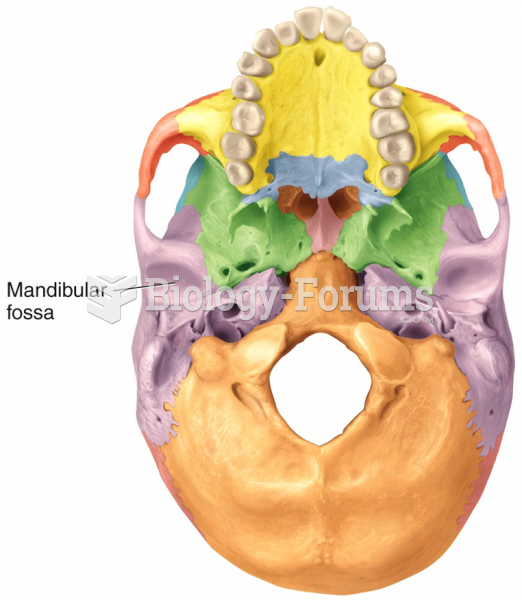|
|
|
For high blood pressure (hypertension), a new class of drug, called a vasopeptidase blocker (inhibitor), has been developed. It decreases blood pressure by simultaneously dilating the peripheral arteries and increasing the body's loss of salt.
Elderly adults are living longer, and causes of death are shifting. At the same time, autopsy rates are at or near their lowest in history.
Less than one of every three adults with high LDL cholesterol has the condition under control. Only 48.1% with the condition are being treated for it.
By definition, when a medication is administered intravenously, its bioavailability is 100%.
One way to reduce acid reflux is to lose two or three pounds. Most people lose weight in the belly area first when they increase exercise, meaning that heartburn can be reduced quickly by this method.
 Transurethral resection of the prostate (TURP). As a treatment for BPH, part of the prostate gland i
Transurethral resection of the prostate (TURP). As a treatment for BPH, part of the prostate gland i
 Phlebotomy. In this common procedure, a syringe needle punctures a vein, usually in the arm, and wit
Phlebotomy. In this common procedure, a syringe needle punctures a vein, usually in the arm, and wit





